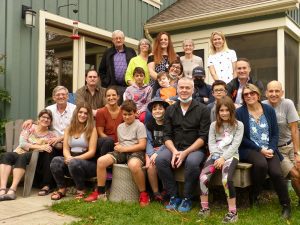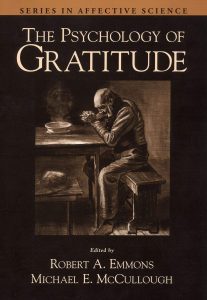
It’s coming up to five months since the derecho winds struck our community on May 21. In those first few weeks after the storm, I wrote extensively about the experience – the fearful moments prior to, the anxious moments during, the mixed emotions afterward. But as damaging as those times proved to be, I think we all shared the sentiment. It could have been worse.
“At least we don’t have bombs falling on our heads,” I remember thinking (a reference to the plight of Ukrainian civilians facing Russian bombardment in their homes and streets).
My family and I spent part of Thanksgiving weekend gathering, catching up, feasting, laughing and shedding an emotional tear or two.
We’ve all had strange experiences over the past couple of years. But for the first time since the COVID-19 pandemic roared through, members of my family felt a certain relief and calm as we chatted and shared traditional foods of the harvest.
And for at least a few hours we enjoyed a day to pause, set aside our problems and the distractions of our lives, and we acknowledged what truly matters – a sense of gratitude for what we have.
 You won’t be surprised that a number of U.S. academics have examined the effect that “a grateful outlook” has on our psychological and physical well-being. In 2003, R.A. Emmons and M.E. McCullough (a couple of psychology professors at the University of California) conducted several studies with participants who recorded their daily and weekly moods, behaviours, physical symptoms and overall life appraisals related to feeling grateful.
You won’t be surprised that a number of U.S. academics have examined the effect that “a grateful outlook” has on our psychological and physical well-being. In 2003, R.A. Emmons and M.E. McCullough (a couple of psychology professors at the University of California) conducted several studies with participants who recorded their daily and weekly moods, behaviours, physical symptoms and overall life appraisals related to feeling grateful.
The professors’ results were published in the Journal of Personality and Social Psychology, and despite the cumbersome criteria of their study, the doctors found generally that gratitude “builds psychological, social and spiritual resources … inspires prosocial reciprocity … and strengthens social bonds and friendships.” In other words, being thankful promotes good mental and physical health.
I think we’ve all felt that these past few years of forced separation imposed by pandemic restrictions have severely cramped and even distorted the way we communicate with our spouses, our children, our neighbours and particularly strangers. I for one have not heard many people say, “Thanks for your kindness…” or “I really appreciate that gesture…” very much.
We could all take the cue that Thanksgiving provides once a year and spread the feeling across a few more days of the year to be more charitable to others in everyday deeds and interactions. The other day, a woman, for whom I held the door open at the grocery store, seemed quite stunned by the gesture. The resulting smiles we exchanged were, as the learned American professors suggested, incredibly uplifting.
I take a lot from the comments that fellow columnist Lisha Van Nieuwenhove offered last week in her column “Share the freakin’ road,” about incidents of road rage in the countryside. She recreated an incident involving a driver in a hurry, unable or unwilling to wait for a farm vehicle to make a difficult turn on the road – the car driver cursing at the tractor operator all the way.
I repeat Lisha’s final words in that column: “Slow down, breathe and remember that nothing is so important it can’t wait a few seconds.” That’s a perfect recipe for a lot of situations, including feeling grateful, not entitled.
At that Thanksgiving gathering my family and I shared last weekend, we invited a man and his family from Montreal and a woman from Toronto to join us – the man and woman are the children of a half-brother my wife and her sister never knew they had.
A couple of years ago now, my wife and sister-in-law learned that their mother had given birth to Bill, the half-brother, during the Second World War. Unable to support a baby at the time, my mother-in-law gave him up for adoption; miraculously she kept the pregnancy and birth a secret throughout her life. But the science of genetics and the internet being what they are, the two sides of the family traced Bill (now deceased) to his son in Montreal and his daughter in Toronto. This year, we invited them to join us for Thanksgiving for the second year in a row.
The excitement and pleasure of having this new branch of our family join us has given us much to be grateful for. When he got home, Bill’s son emailed us:
“I just wanted to say thanks to all of you,” he wrote. “We had a great time and it was amazing to catch up in-person with everyone this Thanksgiving.”
The gratitude is mutual and inspiring enough to last until we celebrate Thanksgiving together again next year, and a few times in between.